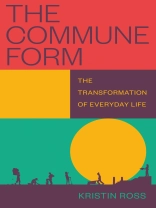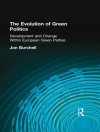When the state recedes, the commune-form flourishes. This was as true in Paris in 1871 as it is now whenever ordinary people begin to manage their daily lives collectively. Contemporary struggles over land – from the zad at Notre-Dame-des-Landes to Cop City in Atlanta, from the pipeline battles in Canada to
Soul�vements de la terre – have reinvented practices of appropriating lived space and time. This transforms dramatically our perception of the recent past.
Rural struggles of the 1960s and 70s, like the ‘Nantes Commune, ‘ the Larzac, and Sanrizuka in Japan, appear now as the defining battles of our era. In the defense of threatened territories against all manners of privatization, hoarding, and infrastructures of disaster, new ways of producing and inhabiting are devised that side-step the state and that give rise to unprecedented kinds of solidarity built on pleasurable, fruitful collaborations. These are the crucial elements in the present-day reworking of an archaic form: the commune-form that Marx once called ‘the political form of social emancipation, ‘ and that Kropotkin deemed ‘the necessary setting for revolution and the means of bringing it about.’
عن المؤلف
Kristin Ross was born in State College, Pennsylvania in 1953. She attended the University of California at Santa Cruz and received a Ph D in French Literature from Yale in 1981. She is the author of a number of books on modern French politics and culture, all of which have been widely translated: The Emergence of Social Space: Rimbaud and the Paris Commune (Minnesota, 1988; Verso, 2008); Fast Cars, Clean Bodies: Decolonization and the Reordering of French Culture (MIT, 1995); May 68 and its Afterlives (Chicago, 2002), and Communal Luxury: The Political Imaginary of the Paris Commune (Verso, 2015). She has also translated works by Jacques Ranci�re and by the militant collective, Mauvaise Troupe. She lives in Stone Ridge, New York and Paris.












